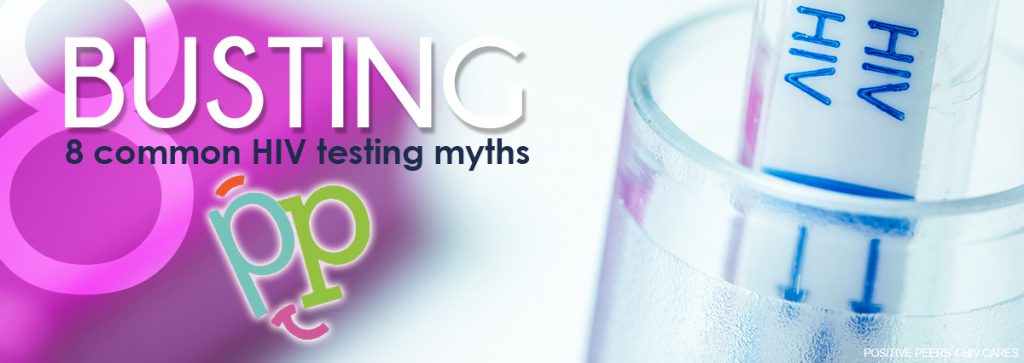
By: Ann K. Avery, MD, Infectious Disease Physician at MetroHealth Medical Center
It’s easy to get tested for HIV. But guess what: It’s even easier to cook up excuses to not get tested. We see you, girl.
Human nature: If you gotta choose between easy and easier, you go with easier. That’s especially true with HIV because there are all sorts of convenient myths about testing that let people talk themselves out of it.
We get it — it can be tough to talk yourself into getting tested with all the fake news out there. But once you know these eight common HIV testing myths, you’ll start seeing that getting tested is the right call. And that’ll help you get past your worries.
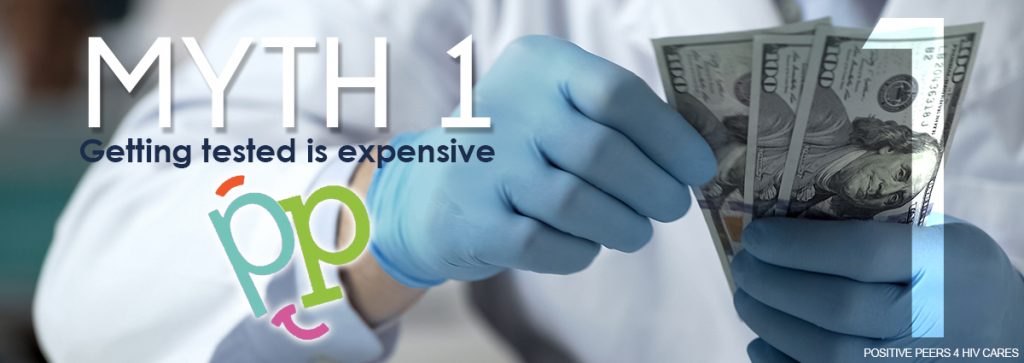
Myth 1: Getting tested is expensive.
Nope. You don’t even have to drop a nickel or dime to get an HIV test. Clinics and other sites across Greater Cleveland offer free HIV testing. Check out this link and scroll down to where it says “Free HIV Testing in Greater Cleveland.”
That’s not to say every kind of HIV test is free. Some tests require you to pay (more on that below) but the point is, for a basic HIV test, you don’t have to pay.
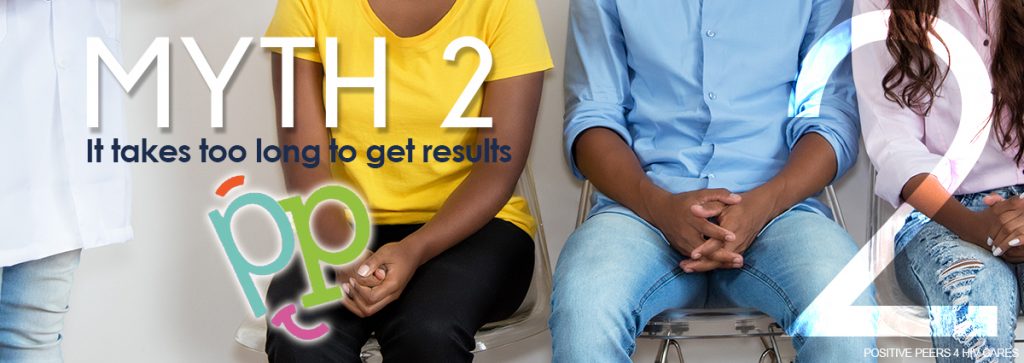
Myth 2: It takes too long to get results.
Long gone are the weeks of worrying and waiting for the result of your HIV test. Most of today’s rapid HIV tests get you your results in about 20 minutes. Some can even produce results in as little as sixty seconds!
And did we mention that these tests are offered for free in a lot of places?
One thing to keep in mind with HIV testing is the “window period.” The window period is the time between the potential infection (sex, shared needle, etc.) and the time when there’s enough virus or antibodies for the test to accurately detect it. Today’s fourth generation antigen/antibody test can give most people an accurate result in as little as 13 days after potential exposure.
Because of the window period, it’s a good idea to get retested in 90 days or so, especially if you’re still getting your sexy on. 😉
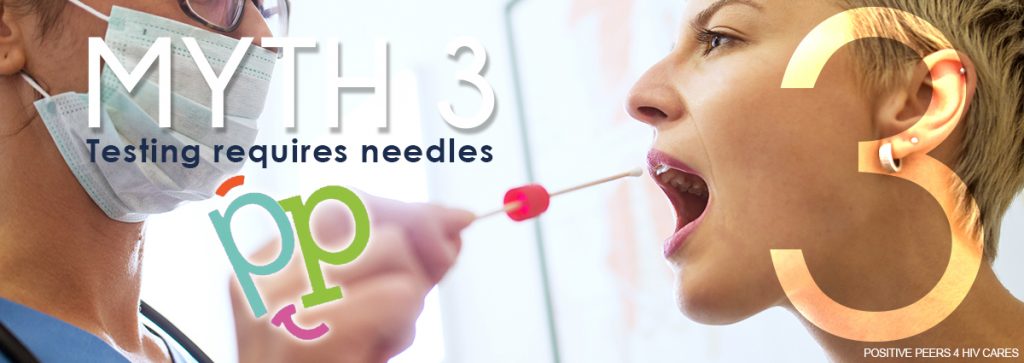
Myth 3: Testing requires needles.
A simple oral swab can grab a bunch of cells that a test can scan for HIV. You don’t have to give a blood sample if needles creep you out.
When you go to a clinic for testing, a counselor will walk you through all the options and help you make the right call. They’ve tested thousands of people just like you who may have had the same questions and concerns.
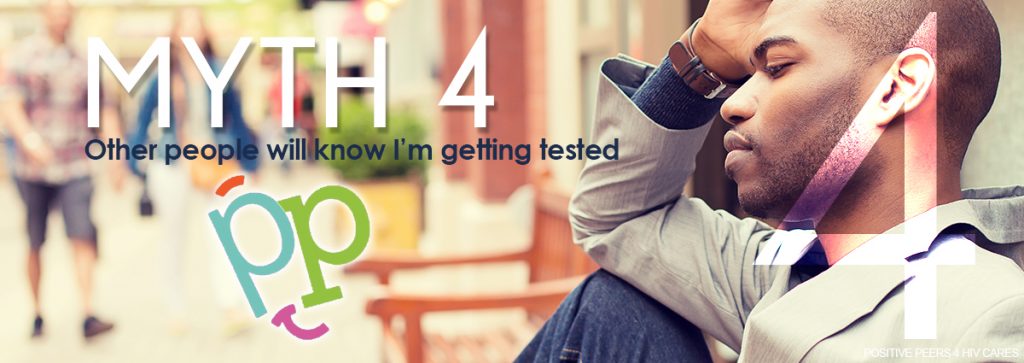
Myth 4: Other people will know I’m getting tested.
Not the case. HIV testing is confidential, private and is often available in places that serve people for various health needs. Even your primary care physician can order an HIV test for you and it’s almost always covered by insurance.
You can also get an at-home test, so you don’t have to get tested in an office. Mind you, the at-home versions aren’t free — and they can get pretty pricey — but they give you total confidentiality. You also can get counseling from the manufacturer.
Check out these facts on the home tests from the Centers for Disease Control and Prevention (CDC).
Come join our private, stigma-free, supportive community.
Health management tools with medication & appointment reminders.
Social networking in a community conversation & private chats.
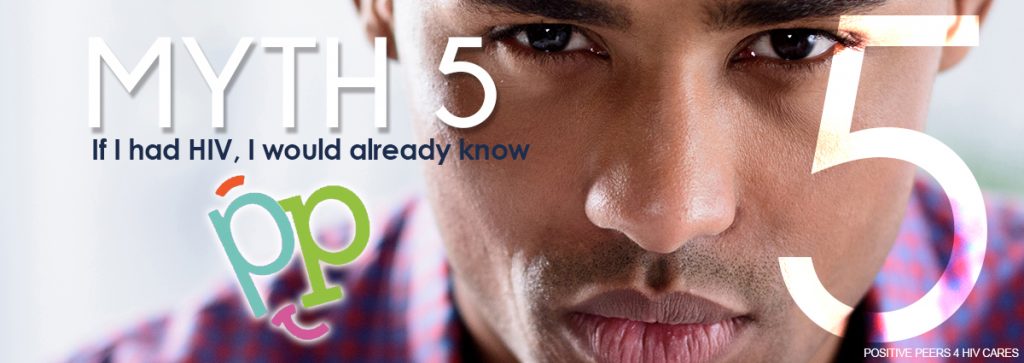
Myth 5: If I had HIV, I would already know.
Sorry, this one doesn’t fly. Testing is the only way to confirm your HIV status.
When you get infected with HIV, the virus spreads rapidly in your body and may give you symptoms that seem like a really nasty case of the flu. You feel like crap for about a week, and then it seems to go away.
The tricky thing is it doesn’t happen like that to everybody. Some people don’t get sick at all when they become infected. Others have symptoms so mild that they hardly notice.
Mind you, there are symptoms that come with AIDS, the advanced form of an HIV infection. But they might not show up until years after you get infected. And by the time HIV advances to AIDS, your immune system could suffer permanent damage.
That’s why we suggest getting tested right away to find out if you’re living with HIV.
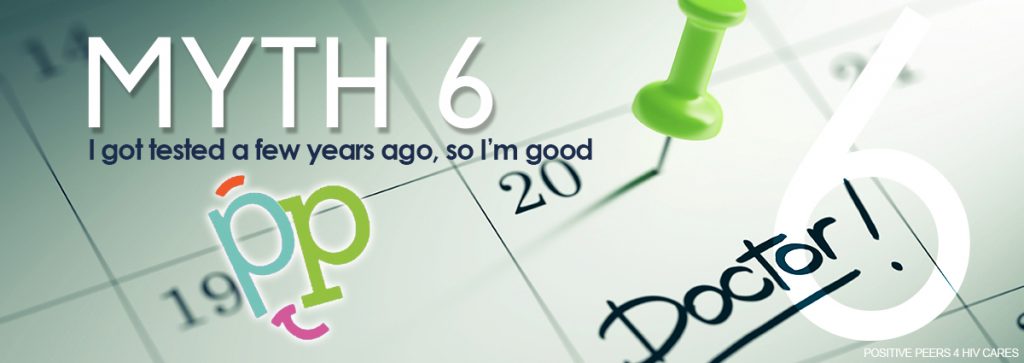
Myth 6: I got tested a few years ago, so I’m good.
If only! If you’ve had unprotected sex (oral, vaginal, or anal) or have shared needles since your last test then you’re at risk.
You’re at an even higher risk if you share needles or have sex frequently, with multiple partners, or with people whose HIV status is unknown or outdated.
While you can’t be sure your partners in sex or injected drugs will never expose you to HIV, you can do things to protect yourself such as get tested regularly, starting on PrEP, and increasing your condom use. The CDC recommends people who are at a high risk for HIV get tested every three to six months.
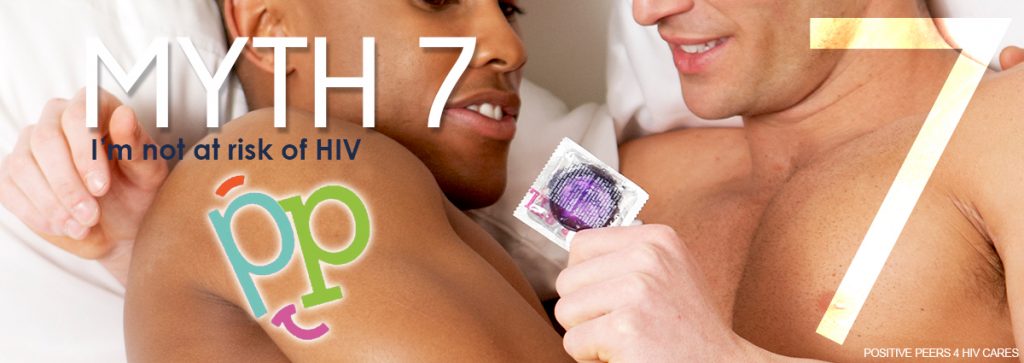
Myth 7: I’m not at risk of HIV.
HIV doesn’t care about your sexual orientation or gender identity. It can infect any living person. If you’re sexually active, it’s a good idea to get tested once a year. While you may have a lower HIV risk than other people, it’s not zero unless you’ve always been celibate and have never injected drugs.
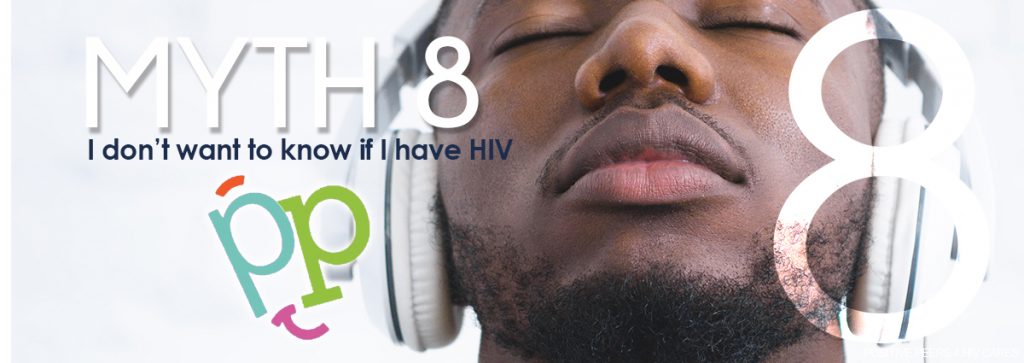
Myth 8: I don’t want to know if I have HIV.
Trust us, you do want to know. It’s important to know your HIV status for your health, the health of your relationship(s), and for your future.
HIV is preventable, so if you aren’t infected you can get yourself protected with things like PrEP.
And if you are living with HIV, it’s going to be okay! With proper care and treatment most people live long, healthy lives full of sex, adventures, and challenges just like anyone else.
Want to hear it from the mouths of people living with HIV? Let some of our young patients tell you their stories!
This is not a myth: HIV testing puts you in control
Getting tested proves one thing: You’ve realized you’re tougher than any virus and you’re in control of HIV, not the other way around.
Nuke your excuses and take the test. You’ll be better for it.
Related Blogs:


